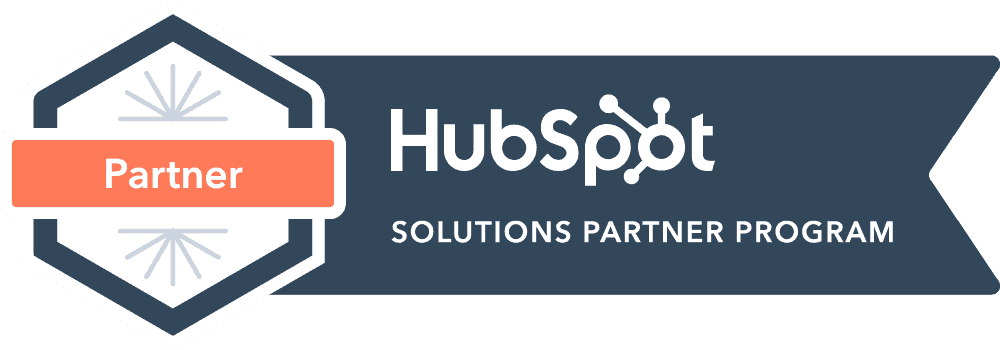Freelancing offers exciting projects, schedule flexibility, and good income. It requires preparation, planning, and learning new skills. Our guide covers everything from preparation to a successful career, including financial management and client relationships. Whether you’re new or experienced, this guide has you covered.
- Introduction to Jobs Information for Freelancer
- Preparing for Freelancing
- Setting Up Your Workspace
- Financial Preparation
- How Do Freelancers Find Work Opportunities?
- Is Freelancing a Viable Long-Term Career Option?
- What Are the Different Types of Freelancing Jobs Available?
- Managing Freelance Projects
- Freelancer Growth and Success
- Client Relationships
- Continuous Learning
- Frequently Asked Questions
- Conclusion
Introduction to Jobs Information for Freelancer
Being a freelancer in the digital age offers flexibility and freedom to work on your terms. While it can be challenging, freelancing is a great way to pursue your passion and achieve work-life balance. The internet has opened up many opportunities for millions of Americans who have chosen freelancing as their career path.
Preparing for Freelancing
Before embarking on your freelancing journey, assessing your skills and identifying your niche is crucial. Researching the market demand for your expertise will help determine if freelancing is viable. Building a solid portfolio showcasing your work will attract potential clients, setting you apart from the competition.
Creating a dedicated workspace and acquiring the necessary tools and software are essential to preparing for freelancing. Lastly, understanding the legal and financial aspects, such as taxes and invoicing, is necessary for smooth self-employment.
Considering these factors, you’ll be well-prepared to kickstart your successful career as a freelancer.
Setting Up Your Workspace
Create a productive and inspiring workspace to enhance your freelance journey. Choose a designated area in your home and optimize it by arranging your equipment ergonomically and efficiently. Keep your workspace organized, minimize distractions, and invest in the best tools and equipment that align with your work needs. A productive workspace is crucial for success as a freelancer.
Financial Preparation
To successfully transition into the world of freelancing, it is essential to understand the financial aspects and prepare yourself for self-employment. One crucial factor is tracking your income and expenses for tax purposes, ensuring compliance with legal requirements. Additionally, as a freelancer, exploring options for health insurance coverage that suit your needs is crucial.
Given the irregular income freelancers often face, creating a budget and implementing financial management strategies becomes imperative. Furthermore, setting financial goals and planning for retirement is crucial for long-term financial stability as a freelancer. By prioritizing financial preparation, you can set yourself up for success in self-employment.
Freelancing and Financial Management
As a freelancer, effective financial management is essential for success. A key strategy is establishing and maintaining a separate business bank account to keep track of income and expenses. Keeping detailed records for tax purposes is also essential to ensure compliance and maximize deductions.
In the U.S., freelancers do not receive W-2 forms for income tax purposes and instead are sent a 1099-MISC tax form, which typically doesn’t include any tax withholdings.
A freelancer who provides services to multiple clients during a tax year will receive 1099-MISC forms from each client.
Accounting software like QuickBooks Online can simplify financial tracking and provide insights into business performance. Staying on top of invoicing and payment collection is crucial to ensure a steady cash flow.
By implementing these financial management strategies, freelancers can optimize their earnings and set themselves up for long-term success.
How Do Freelancers Find Work Opportunities?
Freelancers can find work opportunities through various channels. Online platforms like Upwork and Freelancer connect freelancers with clients seeking their skills.
Networking with professionals in the field can create job opportunities through referrals. Cold pitching involves reaching out directly to potential clients.
Freelance marketplaces such as Fiverr offer a wide range of gigs for freelancers. Online job platforms provide an easy way to search and apply for freelance jobs.
Online Job Platforms
Online job platforms offer a wide array of freelance job opportunities. These platforms serve as a hub where self-employed individuals, independent contractors, and even full-time freelancers can connect with potential clients.
By creating profiles and showcasing their work, freelancers can easily attract clients seeking specific skills. The platforms also provide messaging features, enabling seamless communication between freelancers and clients. Furthermore, many online job platforms have built-in payment systems that ensure secure and hassle-free transactions.
For those new to freelancing or small business owners, online job platforms offer the best way to find work and establish a solid online presence. However, knowing the potential cons and thoroughly researching the platform is essential before committing to any job.
Networking
Networking with professionals in your field can lead to job referrals. Attending industry events and conferences allows you to meet potential clients. Joining online communities and forums helps you connect with fellow freelancers and potential clients.
Building colleague relationships can lead to collaborative projects, expanding your skillset and portfolio. Staying active on social media platforms enables you to engage with a broader audience and network with industry influencers.
Self-employed individuals, like freelancers, often rely on networking as the best way to secure new work opportunities. It’s essential for full-time freelancers and independent contractors to continually expand their professional network, both online and offline, to stay competitive in the ever-evolving job market.
Cold Pitching
Reaching out to potential clients directly is a crucial aspect of cold pitching. Crafting personalized pitches tailored to their needs is essential to grab their attention. Researching the client’s requirements and offering solutions in your pitch can significantly increase your chances of success. Following up after sending a cold pitch demonstrates your commitment and professionalism.
Understanding that cold pitching requires persistence and resilience is crucial, as not all pitches will result in job offers. However, with the right approach and perseverance, cold pitching can be an effective way for self-employed individuals, like freelancers, to secure new work opportunities and grow their small businesses.
Freelance Marketplaces
Freelance marketplaces such as Fiverr and Guru act as platforms connecting self-employed individuals and freelancers with clients seeking their services. These online platforms offer various gigs in various industries, making them the best way for freelancers to explore new work opportunities and grow their small businesses.
Freelancers can create profiles on these marketplaces to showcase their skills, past work, and expertise as independent contractors. Clients browsing through profiles can hire freelancers directly based on their requirements. To help clients make informed decisions, freelance marketplaces often incorporate rating systems highlighting full-time freelancers’ quality and reliability.
Is Freelancing a Viable Long-Term Career Option?
Absolutely! Many freelancers have established successful businesses and maintain a steady income. By possessing the right skills and committing to their work, freelancers can attract high-paying clients and experience flexibility.
To ensure long-term prosperity, continuous learning and skill development are essential. Choosing to freelance long-term is achievable with proper management. Freelancers can enjoy stability and financial security by building solid client relationships, diversifying their offerings, and setting practical financial objectives. The freedom to control one’s work and achieve a desirable work-life balance is an added benefit of freelancing.
What Are the Different Types of Freelancing Jobs Available?
There are many different freelance jobs available that are based on your skills and interests. Some examples of these jobs include writing, editing, graphic design, web development, photography, videography, social media management, consulting, coaching, and virtual assisting.
Managing Freelance Projects
Effectively managing freelance projects from start to finish is the key to success in freelancing. Communication plays a critical role in ensuring project success, so it’s important to establish open and transparent lines of communication with clients.
Setting realistic timelines and deadlines is essential to keep projects on track and avoid unnecessary stress. Scope creep can be challenging but mitigated by managing client expectations and clearly defining project scope upfront.
Finally, balancing delivering high-quality work and maintaining a healthy work-life balance is crucial. By mastering these aspects, self-employed individuals, independent contractors, and full-time freelancers can excel in their projects and achieve their goals.
Client Communication
Effective client communication is essential for building solid relationships as a freelancer. You can ensure your clients feel heard and understood by active listening and clear, concise communication strategies. Utilizing tools and platforms designed for client collaboration can enhance communication and streamline project workflows.
It is also essential to effectively manage client feedback by incorporating it into your work, ensuring their vision is realized. Resolving conflicts and addressing client concerns professionally are vital skills to maintain a positive working relationship.
Effective client communication is crucial in establishing yourself as a reliable self-employed freelancer professional.
Time Management
Mastering the art of efficient time management is crucial for self-employed professionals, such as freelancers and independent contractors. To effectively manage your time, prioritize tasks based on their importance and urgency. Setting realistic deadlines will help you stay on track and meet client expectations.
Creating a well-organized schedule that maximizes productivity and minimizes stress is essential. Combating procrastination and staying focused on your work are crucial strategies for success.
Lastly, effective time management is crucial to balance work and personal life. By implementing these techniques, freelancers can optimize their productivity and achieve their goals.
Handling Payments
Effective handling of payments is crucial for timely compensation when working as a freelancer. As a self-employed individual or an independent contractor, you must explore the different payment methods and platforms available. This will help you find the best way to receive payments and avoid potential cons.
Additionally, setting fair and competitive service rates is vital in attracting clients and sustaining your freelance business. Creating professional invoices and tracking payment status can help you maintain organized financial records. In case of late payments, it’s essential to establish clear payment terms with clients and address the issue professionally.
Freelancer Growth and Success
Unlocking strategies for self-employed professionals to grow their freelance businesses and achieve long-term success is crucial. The internet has revolutionized how independent contractors find new work opportunities, making it the best way to expand their client base.
However, it’s essential to acknowledge the cons of freelancing, such as continuous learning and professional development, marketing and branding techniques to attract clients, and building a solid network.
Diversifying services is essential for sustainable success, especially for small businesses like computer programmers or full-time freelancers. A recent survey found that 35% of Americans now work as freelancers.
Building a Portfolio
To establish yourself as a successful freelancer, it is crucial to build a compelling portfolio. Your portfolio serves as a showcase of your skills and expertise, allowing potential clients to evaluate the quality of your work.
Highlighting your best projects that align with your target audience’s needs will attract their attention and increase your chances of securing new work is essential. Regularly update your portfolio with new projects and experiences to demonstrate your growth and versatility.
Optimize your portfolio for online searches by incorporating relevant keywords and tags. Lastly, consider requesting feedback and testimonials from satisfied clients to enhance your credibility and reputation within the freelance community.
Client Relationships
Establishing clear communication channels with clients is essential for smooth collaboration. It helps understand client expectations and deliver high-quality work that meets their needs. Maintaining professionalism and responding promptly to client inquiries and feedback is crucial for building trust and credibility. Cultivating long-term relationships by providing excellent customer service ensures client satisfaction and loyalty.
Seeking feedback allows for continuous improvement of services and enhances client satisfaction. By following these practices, self-employed freelancers can foster strong client relationships and develop a reputation as reliable and trusted independent contractors. This, in turn, leads to more job opportunities and success in the competitive world of freelancing.
Continuous Learning
To thrive as a freelancer, continuous learning is essential. Staying updated with the latest industry trends and advancements is crucial for success. Professional development opportunities like workshops and webinars can further enhance your skills and knowledge.
Joining online communities and forums allows you to network with peers and provides valuable learning opportunities. Embracing new technologies and tools can improve your efficiency and keep you competitive.
Lastly, adopting a growth mindset and actively seeking opportunities for personal and professional growth will ensure that you stay ahead in the ever-evolving world of freelancing.
Frequently Asked Questions
Conclusion
As a freelancer, you benefit from flexibility, independence, and the chance to pursue your passions. However, preparing and managing your career effectively for success is essential. Every aspect of freelancing requires attention and dedication, from organizing your workspace to finding work opportunities, managing projects, and maintaining client relationships.
To excel in this competitive field, you must continuously learn, grow, and adapt to changing trends and technologies. To ensure long-term success, building an impressive portfolio, maintaining excellent communication with clients, and managing your time and finances effectively is crucial.
Please don’t hesitate to reach out if you have any questions or need further guidance on your freelancing journey. We’re here to support and assist you every step of the way.





